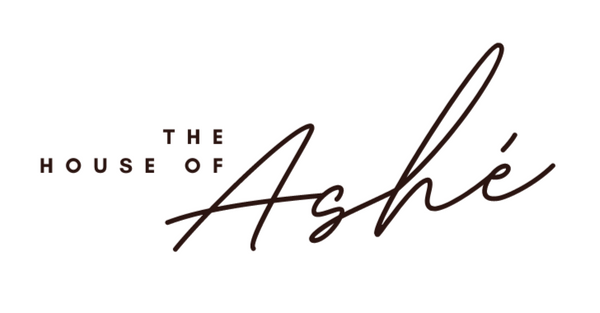Elegua & Papa Legba: Honoring the Guardians of the Crossroads
Feast Day: June 13 – Saint Anthony
At the heart of Afro-Caribbean spiritual traditions, the crossroads holds deep symbolic and ritual power. It is the space where the spiritual world and the material world meet, where destiny can shift, and where our choices echo across lifetimes. And it is here, at this liminal point, that we find Elegua and Papa Legba — two powerful guardians who open and close the way.
Although they serve similar roles, Elegua and Papa Legba originate from different lineages. Elegua is an Orisha, a divine force from the Yoruba tradition, deeply revered in systems like Lukumí (Santería), Candomblé, and other Orisha-based faiths of West Africa and the diaspora. Papa Legba is a Lwa (or Loa), a spirit in the Vodou tradition of Haiti and the 21 Divisiones of the Dominican Republic. Both are messengers between the divine and the mortal and must be honored first before any ritual or prayer can proceed. However, they are distinct entities, not interchangeable, each with unique energy, symbols, and sacred offerings.
Elegua: The Trickster Who Tests, Protects, and Opens Doors
In Lukumí and Yoruba-based traditions, Elegua is the guardian of the crossroads, the messenger of the Orisha, and the opener of all roads. He is one of the first Orisha received in initiation, and one of the four “Guerreros” or warrior Orisha, alongside Ogun, Ochosi, and Osun. No ceremony begins without first acknowledging him. Without Elegua, nothing moves.
Elegua is more than a gatekeeper. He is also a divine trickster — a tester of spirit and character. His "tricks" are not cruel but instructive. He may close a door or throw an obstacle in your path not to harm you, but to challenge your readiness, to ask: are you prepared for what lies ahead? Are you following your intuition, your faith, your higher self?
As the owner of all caminos (roads), Elegua has the power to open pathways or block them entirely. He teaches us discernment. He reminds us that not all that glitters is gold, and that sometimes the delay is the divine protecting us from what we cannot yet see. Elegua reminds us that everything has its time.
He is associated with the colors red and black, the numbers 3 and 21, and his tools often include keys, cowrie shells, and whistles. Offerings include candies, rum, cigars, coconuts, or toys left at a crossroads or by the front door. He is youthful, mischievous, wise beyond measure, and always watching.
Papa Legba: Wisdom at the Threshold
In Haitian Vodou and 21 Divisiones, Papa Legba is the first Lwa called in ritual. He is the elder who holds the keys to the spirit world and grants or denies access to the Loa. With a cane or crutch, a pipe, and a quiet strength, Papa Legba stands at the gates of communication, guiding messages between the divine and the living.
In Haitian Vodou, Papa Legba is often synchronized with San Lázaro, reflecting his role as the elder and the healer at the gate. Whereas in 21 Divisiones (Dominican Vudú), he is aligned with Saint Anthony, who — like Legba — helps find lost people and things and opens paths. While this is an important distinction for those working in different lineages, neither is wrong — both reflect the way traditions adapted under colonial rule and evolved to reflect and support local cultures and their needs.
Papa Legba is the spirit of understanding, communication, and divine access. He is also a representation of balance. In Vodou, all spiritual energies are understood to have both masculine and feminine expressions, necessary for spiritual balance. Papa Legba is the masculine counterpart of Erzulie Dantor, whose fierce maternal love and protection balance Legba’s fatherly wisdom and patience.
Offerings to Papa Legba include black coffee, bread, roasted corn, tobacco, and rum. He is honored at dawn, and his veve (sacred symbol) is drawn to invite his presence. While Elegua is youthful, Papa Legba is aged; where Elegua dances in riddles, Legba walks in wisdom.
Honoring the Crossroads: A Sacred Responsibility
While their origins are rooted in different systems — Orisha and Loa — Elegua and Papa Legba are not the same being, but they are spiritual echoes of one another. Both govern access to the divine. Both challenge us to walk with awareness, respect, and humility. Both remind us that not all doors are meant to be opened — and those that are will require us to be ready.
Due to their combined synchronization with Saint Anthony, June 13 is an ideal day to honor these powerful gatekeepers. Light a red or white candle. Leave offerings at the doorway, the altar, or at a literal crossroads. Speak your truth. Ask for guidance. Thank them for the roads that have opened and the ones that stayed shut.
In honoring Elegua and Papa Legba, we are reminded that we do not walk this path alone. These spirits challenge us, guide us, and stand beside us as we navigate the journey of life. They are not just messengers. They are teachers, protectors, and the sacred threshold itself.
Today, I ask as you honor these guardians, to reflect on where you stand. Are you at a crossroads? Are you listening to the signs, accepting their messages? Are you ready for what’s next?
May your path be blessed with protection, wisdom, and ashé - ayibobo!
—
Written with love and devotion,
Mambo Jae Ashé | www.thehouseofashe.com

